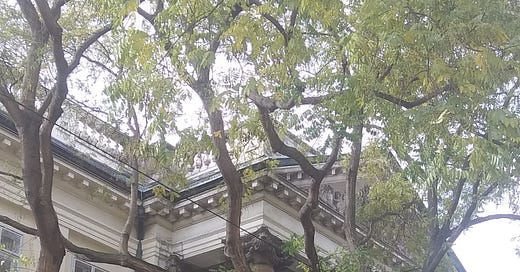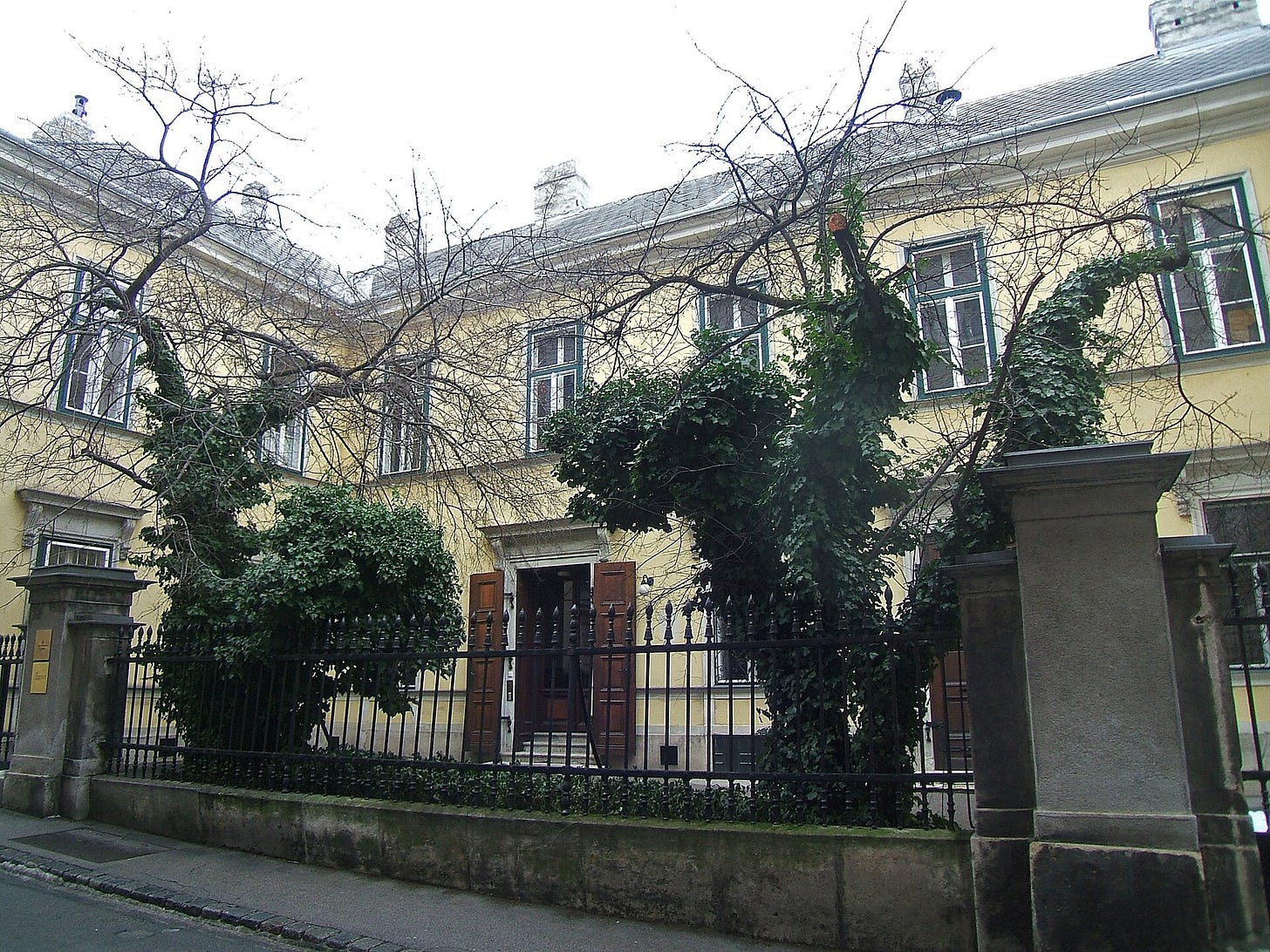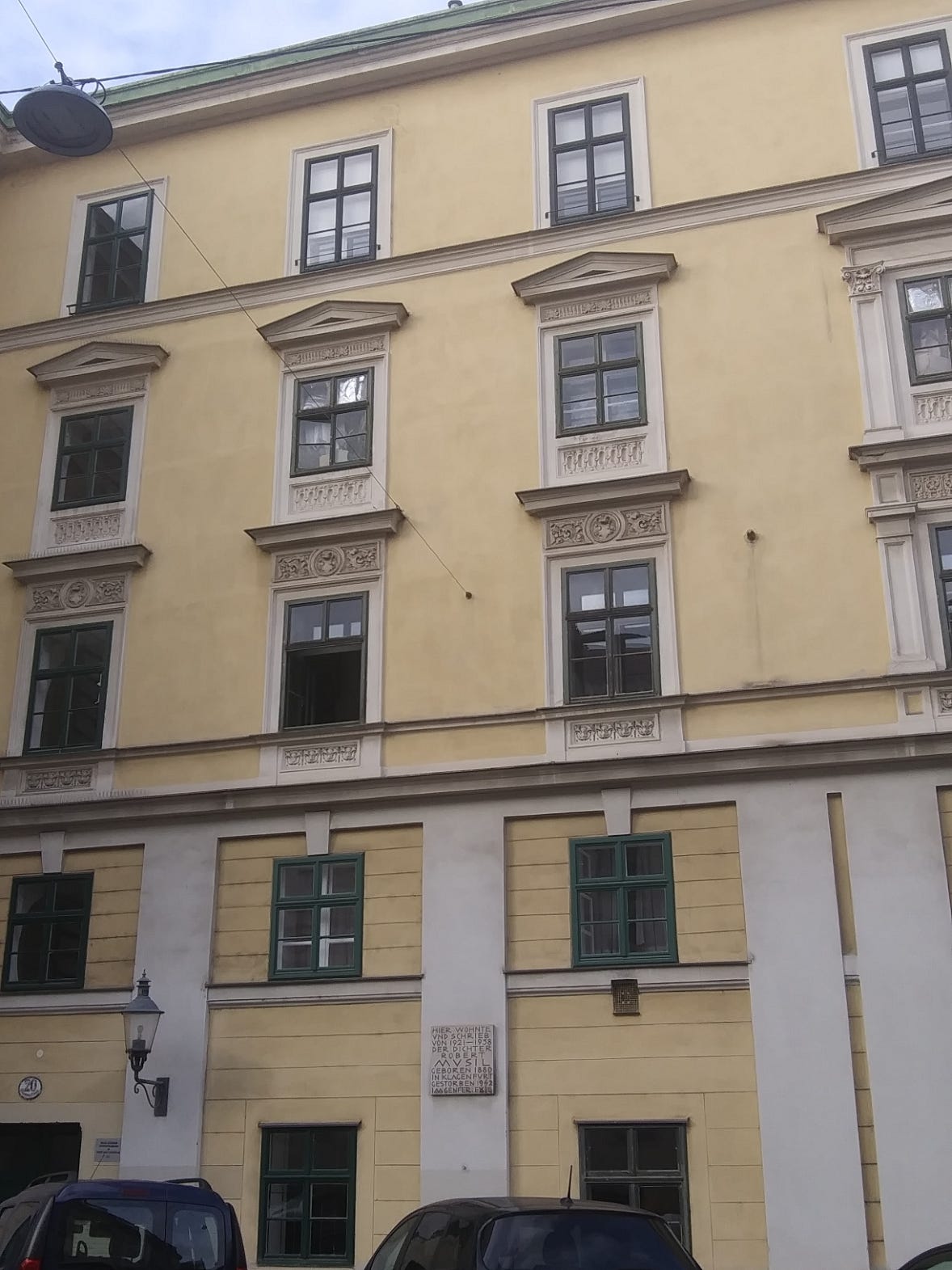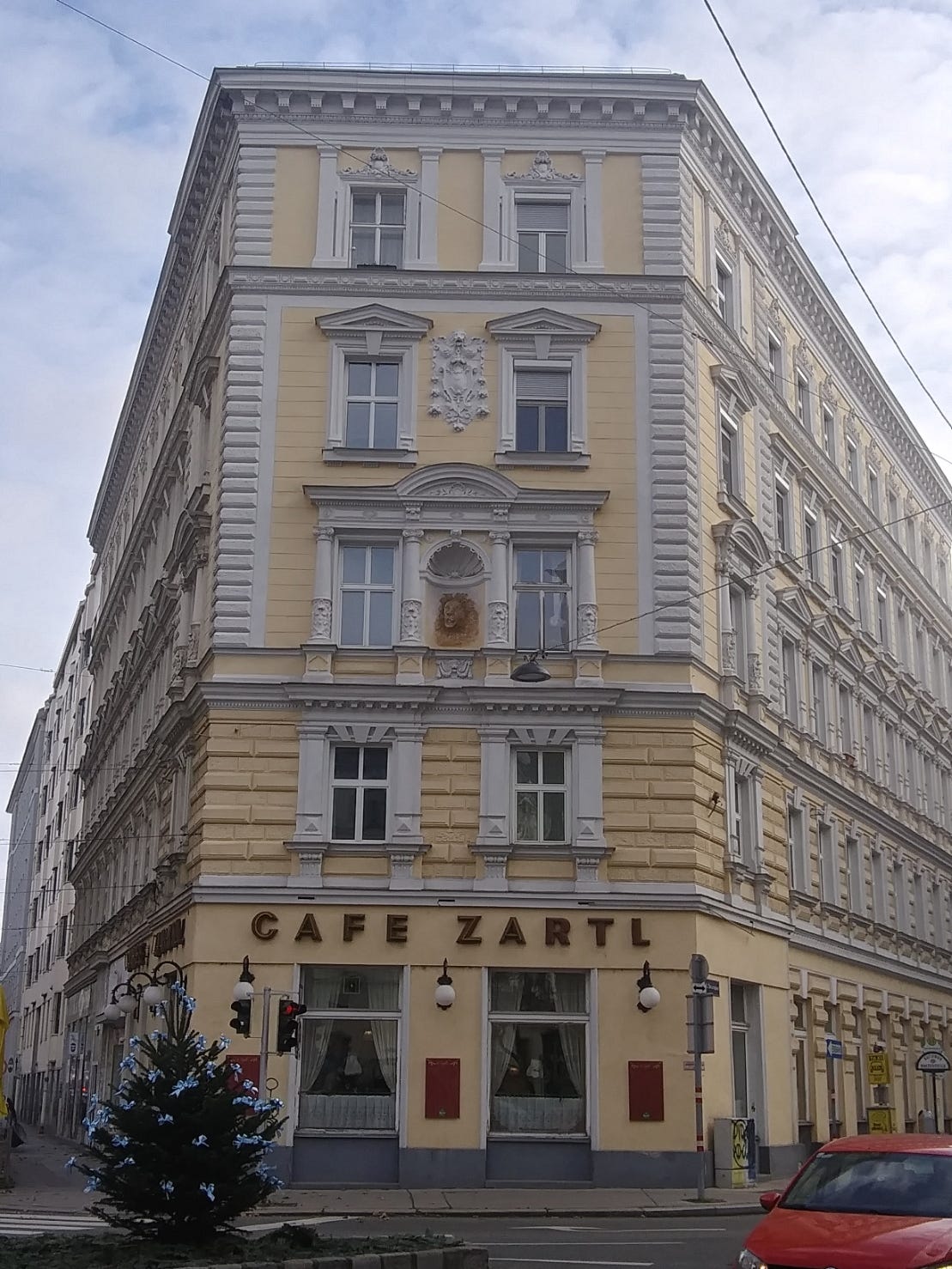While living in Vienna on the Rasumofskygasse, the Musils were surrounded by little castles, the Rasumofskygasse Palais across from the entrance to their apartment, and the Palais Salm, which Musil could see when he looked down from his study window. Its gardens, which are thought to have been the inspiration for those where Ulrich and Agathe lounge and read to each other from the mystics, are no longer visible from where his windows were because the garden was halved to erect another building and perhaps also because part of it blocked his view. [Thank you to Thomas Hübel in Vienna who corrected my earlier version of this post. I didn’t realize the garden had been halved. Musil would have been very sorry, as he was when the Parc La Grange in Geneva was used for a potato field in 1942.]
Palais Rasumofsky, across the street from the entrance to the Musils’ apartment in Vienna (my photo). He would not have seen this one from his windows at all.
The garden of the Palais Halm, which Musil was able to see into from his study window.
The side entrance to the Palais Salm, on Salmgasse, which Musil would also have seen from above.
This image of the entrance to the Palais Salm is by Erich Schmid — CC BY-SA 3.0, https://commons.wikimedia.org/w/index.php?curid=6087516
And here is how Musil described the “little castle” wherein Ulrich, the man without qualities, lived:
It was an eighteenth or even perhaps seventeenth-century garden, still in parts unspoilt; and passing along its wrought-iron railings one caught a glimpse through the trees of a well-kept lawn and beyond it, something like a miniature chateau, hunting-lodge, or pavilion d’amour from times past and gone. More precisely, its original structure was seventeenth-century, the garden and the upper storey had an eighteen-century look, and the facade had been restored and somewhat spoilt in the nineteenth century, so that the whole thing had a faintly bizarre character, like that of a super imposed photograph.
But the general effect was such that people invariably stopped and said: ‘Oh, look!’ And when this pretty little white building had its windows open, one could see into the gentlemanly calm of a scholar’s house where the walls were lined with books.
This house belonged to the Man Without Qualities. He was standing at one of the windows, looking through the delicate filter of the garden’s green air into the brownish street, and for the last ten minutes, watch in hand, he had been counting the cars, carriages, and trams, and the pedestrians’ faces, blurred by distance, all of which filled the network of his gaze with a whirl of hurrying forms. He was estimating the speed, the angle, the dynamic force of masses being propelled past, which drew the eye after them swift as lightning, holding it, letting it go, forcing the attention – for an infinitesimal instant of time – to resist them, to snap off, and then to jump to the next and rush after that.
From Chapter Two of Volume One of The Man Without Qualities, translated by Eithne Wilkins and Ernst Kaiser (even though I generally favor Burton Pike’s translation; as I happened to have this one easily at hand).
Martha’s and Robert’s own residence, in Rasumofskygasse 20, was far from palatial.
The tiles in the entranceway today (not sure if they were the same or similar back then).
The stairwell.
The apartment was a railroad walk-through, very narrow except at the far end where the space opened up to Musil’s study, with a wall of books and windows looking down on the Palais Halm. The bathroom was in the hallway, but they used a plastic tub to bathe in the kitchen.
They walked in the nearby Prater most days when it was not rainy or cold, and stopped at the Cafe Zartl to buy cake for lunch.













I wish I could visit the house! Loved the way it was described.
Btw, I finished the book last night, and I have so many questions—what happened to Ulrich and Agarthe? To Ultich and Deotima, and what of the General? Was Gen Strumm playing Ulrich to get the parallel campaign to do his bid? And of course—I want to know about Bonadea….and of course, Moosebrugger. As lonnnggg as it was, I didn’t want it to end—at least not yet!
Also, I haven’t read Thomas Mann’s Magic Mountain—now I’m curious about these inter-war writers and their obsession with morals and morality! As I write this, I’m realizing Hemingway is also of that period, but his style is not my favorite.
Anyway, I’m so curious with this work—anything you can share about the plot that didn’t make it because, well, because the work isn’t finished. I’ll appreciate:)